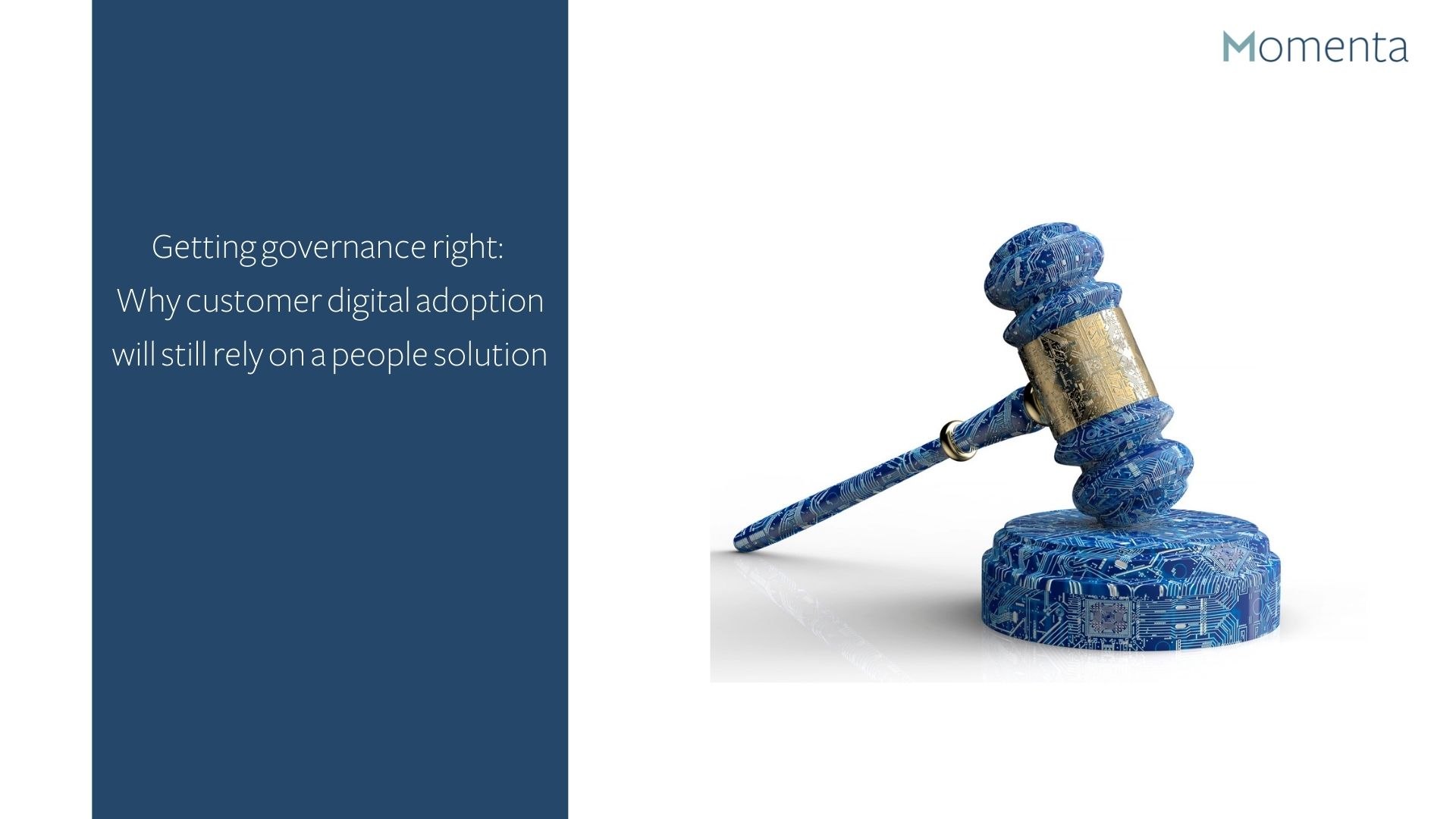Getting governance right: Why customer digital adoption will still rely on a people solution
With the aftershocks and wider impact of the pandemic on businesses still very much in the formative stages of being fully understood, enhanced rates of customer digital adoption amongst many industry sectors are a post-pandemic trend which is already clear to see.
Many companies who had previously still relied on more manual and traditional ways of working have been quick to enhance or fully embrace digital processes in recent months.
Such speeds of process change however are of course not without their challenges, and there is now becoming an ever-sharper focus for many in adopting both the right technology, and critically, hiring the right talent.
With many banks and other financial institutions now fearing that they will lose market share if they are not fully digitised, the ‘digital rush’ in 2021 has seen record numbers of additional customer uptake of these services, particularly amongst sectors of the population who have previously been slower to embrace such digital services.
There are many benefits of course to full digital adoption, but firms still also need to have a key understanding of what role governance plays in their digital transformation. With an ever-changing regulatory environment in which to keep your digital systems and processes aligned, the correctly skilled and the right numbers of resource will be key in ensuring your digital efforts are agile, effective, and compliant.
Financial services businesses need to get this right. Right now.
One of the biggest drivers for customers in moving away from traditional banks and into the arms of the multitude of new to market FinTech providers, is a lack of data-driven decision-making, backed up by the right governance plan.
Many banks struggle to incorporate the day-to-day logistics of getting their governance right and as a result, their data, and crucially the processes which ultimately translate to customer onboarding and wider day-to-day experiences, are simply not optimised.
According to a recent report by Accenture on the power of data-driven enterprise, much of the rich, real-time transactional data to which banks and other financial services companies have to access lies fallow. This real-time data needs the backing of governance behind it, and often it’s a struggle to get the data operational, never mind the governance behind it.
Simply put, the financial services industry needs to adopt better data governance plans, but this cannot be solely achieved by technology platforms and solutions alone.
The right talent drives the required cultural change
If the pandemic has taught financial services companies anything, it is surely that to embrace digital process and journeys, you must equally embrace the right talent.
Getting digital governance right means not only getting the appropriate systems and processes up to date and performing, but also having the right company culture of management, maintenance and oversight of these systems and processes. The two are undeniably intrinsically interlinked.
Getting governance right means that interdepartmental synergy will also be key as governance won’t only impact compliance functions, but also risk and operations teams as well. Developing a culture that is governmentally aligned means that interdepartmental communications are vital, and in larger legacy organisations, this can be particularly challenging.
Ensuring that there is cohesion between teams is key and unfortunately, automation and digitised platforms or systems can only go so far in achieving this.
As much as the right technology is important, the appropriate human eye and governance behind it is even more vital. Having the right staff who not only understand the importance of governance and data privacy, but who can also achieve buy-in and cohesive working strategies with multiple other departments are essential qualities that only physical human resources can provide.
Some of the most notable factors of change during and in the initial post-pandemic period have not just been the automation of processes and systems, but also of wider business security.
Regulatory requirements are constantly changing, and many of these changes are region or industry specific.
To remain on top of these and future changes, governance leaders within businesses need to work with stakeholders from across their respective companies to ensure that nothing is overlooked, whilst also ensuring they are up-to-speed with upcoming additions or alterations to the regulatory landscape.
Momenta are compliance resource specialists
Despite being highly regulated, the Financial Services industry can be unpredictable, with organisations often encountering unforeseen disruption whilst having to adhere to strict legislative demands and deadlines.
To remain compliant, it is increasingly important for financial institutions to undertake detailed assessments, putting measures in place to ensure potential risk is minimised. In such a rapidly evolving industry, there is a consistent and indeed rising demand for specialist knowledge and skill sets.
In parallel, many financial service institutions have of late opted to reduce headcount adopting a leaner, more cost-effective workforce model. However, addressing certain projects with this reduced internal resource and existing skill sets can present significant challenges.
Regardless of how far you are progressed with your digital journey and the processes that are involved, we can provide the right people at the appropriate time as you adapt to and address the challenges that this process can present.
At Momenta, we are continually building our ecosystem of validated, contingent financial services associates with the optimum industry skill sets, readily available when additional specialist support is needed.
Whether you require resources to assist with large scale remediation or front facing customer service roles, our associates’ extensive experience delivers results, on time and cost effectively.
Get in touch with our expert team of consultants to discuss your contingent workforce requirements.
[/fusion_text][/fusion_builder_column][/fusion_builder_row][/fusion_builder_container]

